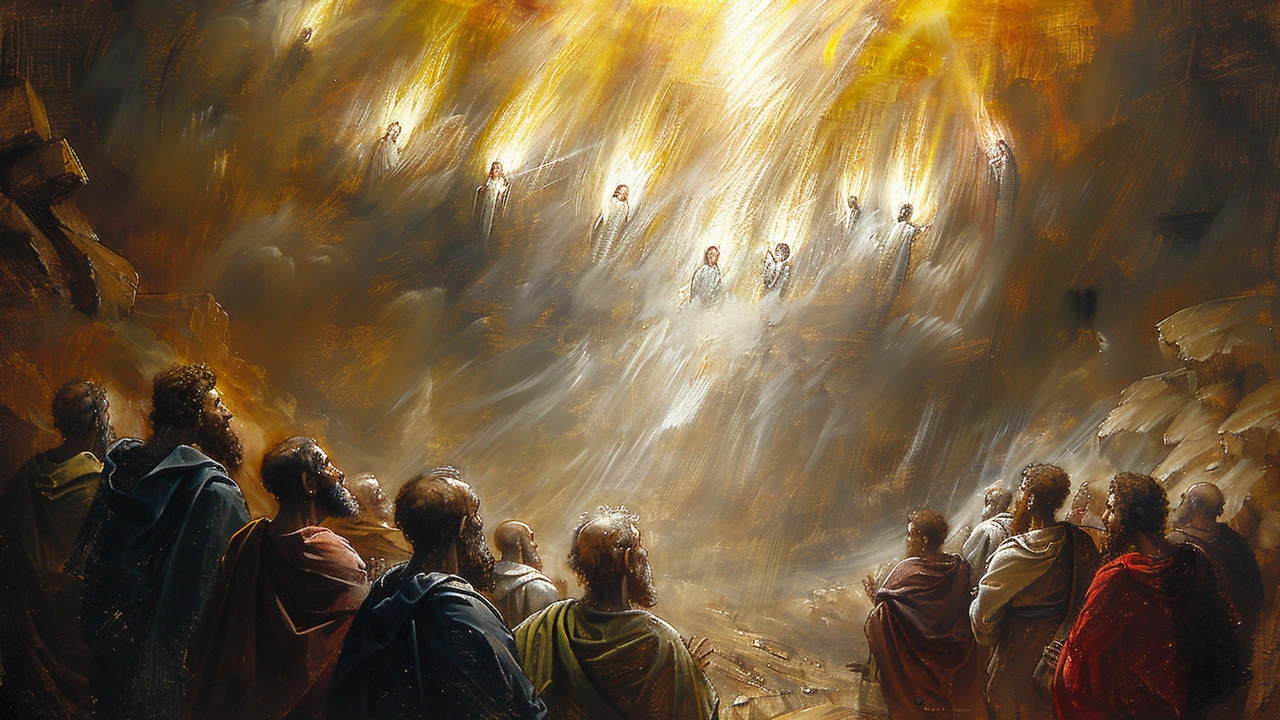Pentecost is a big deal in the Christian world. It happens 50 days after Easter and celebrates the moment the Holy Spirit came down to Jesus’ followers. This event gave them the power and courage to share their message with everyone. So, you could say Pentecost marks the start of the church going out to the world with its message.
Think of it like a spiritual birthday party for the Church, where everything changed. Before Pentecost, Jesus’ followers were hiding, confused, and unsure of what to do next. After the Holy Spirit’s arrival, they were energized, confident, and ready to spread their faith. It's why Pentecost is often called the "birthday of the Church."
Celebrations can look pretty different depending on where you are. Some churches hold special services full of music and prayers focused on the Holy Spirit. You might see red decorations everywhere since red symbolizes fire and the Spirit's power. In some places, people light candles or release doves as symbols of peace and the Spirit’s presence.
For others, it's also a time for reflecting on how the Holy Spirit works in their daily lives. It's about feeling inspired to be kinder, braver, or more loving. Many communities use Pentecost to remind themselves to live with hope and purpose, carrying on the spirit of those first followers.
You don’t have to be religious to appreciate Pentecost. At its heart, it’s about new beginnings and finding strength when life gets tough. That moment of change, where doubt turned into bold action, can inspire anyone facing challenges or new steps in their journey. It’s a reminder that sometimes, a spark – whether spiritual or personal – can brighten everything up and give us fresh energy.
So next time you hear about Pentecost, remember it’s more than just a date on the calendar. It’s a powerful story about courage, unity, and hope that still speaks to millions today.
Posted by
Siseko Tapile
5 Comments

Pentecost is celebrated as a pivotal event in Christianity, often seen as a second Easter. This article explores its profound symbolism, emphasizing the unity of humanity and judgement against tyranny and uniformity. It draws connections to the Book of Joel, the Apocalypse, and the New Testament's Greek origin, highlighting the inclusive nature of the faith.
read more